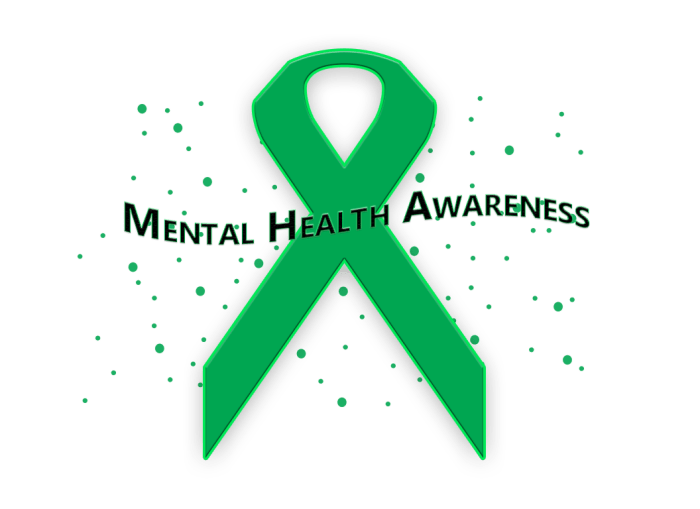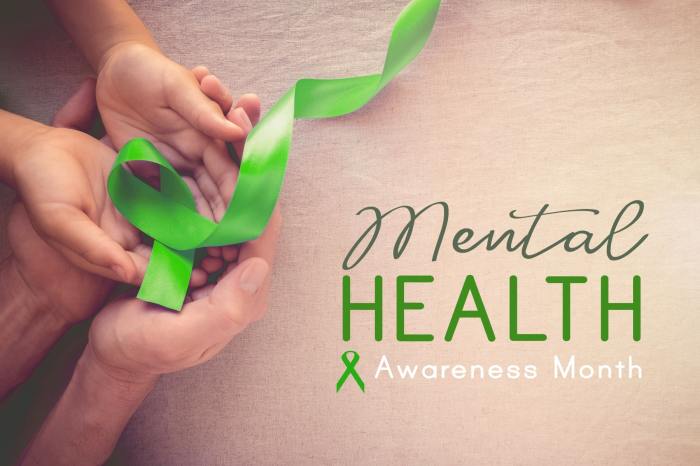With Mental Health Awareness at the forefront, this paragraph opens a window to an amazing start and intrigue, inviting readers to embark on a storytelling American high school hip style filled with unexpected twists and insights.
Mental Health Awareness is more than just a buzzword – it’s a movement. From unraveling misconceptions to fostering support, this topic delves deep into the complexities of mental well-being. Brace yourself for an eye-opening journey through the world of thoughts, emotions, and societal impacts.
The Importance of Mental Health Awareness

Mental health awareness is crucial in society as it helps individuals recognize, understand, and address mental health issues. By increasing awareness, we can break down the stigma surrounding mental health and encourage people to seek help when needed. This can lead to improved overall well-being and quality of life for individuals and communities.
Positive Impact on Individuals
- Increased self-awareness: Mental health awareness can help individuals recognize their own struggles and emotions, leading to better self-care and coping mechanisms.
- Access to resources: Awareness can connect individuals with mental health resources and support systems, ensuring they receive the help they need.
- Reduced stigma: By promoting understanding and acceptance, mental health awareness can reduce the stigma associated with seeking help for mental health issues.
Positive Impact on Communities
- Stronger support networks: Mental health awareness can foster a culture of empathy and support within communities, encouraging individuals to look out for one another.
- Improved productivity: When individuals prioritize their mental health, they are better able to function in their personal and professional lives, leading to increased productivity within communities.
- Reduced healthcare costs: Early intervention and treatment for mental health issues can lead to cost savings in the long run by preventing more serious problems down the line.
Understanding Mental Health
Mental health encompasses our emotional, psychological, and social well-being. It is essential to prioritize mental health as it affects how we think, feel, and act, impacting every aspect of our lives.
Common Misconceptions about Mental Health
- One common misconception is that mental health issues are a sign of weakness. In reality, mental health conditions are medical conditions that require treatment and support.
- Another misconception is that people with mental health disorders are dangerous. The truth is that individuals with mental health conditions are more likely to be victims of violence than perpetrators.
- There is also a misconception that mental health problems will just go away on their own. It’s important to seek help and support to address these issues effectively.
Various Mental Health Disorders and Conditions
- Anxiety Disorders: These include generalized anxiety disorder, panic disorder, and phobias, causing excessive fear and anxiety.
- Depression: A mood disorder that can affect how you feel, think, and handle daily activities, leading to persistent feelings of sadness and loss of interest.
- Bipolar Disorder: Characterized by extreme mood swings from high energy levels to depressive episodes.
- Schizophrenia: A severe mental disorder that affects a person’s thinking, feeling, and behavior, often leading to hallucinations and delusions.
- Post-Traumatic Stress Disorder (PTSD): Develops after experiencing or witnessing a traumatic event, causing flashbacks, nightmares, and severe anxiety.
Promoting Mental Health Awareness

Promoting mental health awareness is crucial in creating a supportive environment for individuals to seek help and reduce stigma. It involves implementing strategies in schools, workplaces, and communities to educate and raise awareness about mental health issues.
Strategies for Promoting Mental Health Awareness
- Organizing mental health workshops and seminars to educate students, employees, and community members about common mental health disorders and how to seek help.
- Implementing mental health screening programs to identify individuals who may be struggling with mental health issues and connecting them with resources.
- Training teachers, employers, and community leaders on how to recognize signs of mental health problems and provide appropriate support.
- Creating mental health awareness campaigns using posters, flyers, and social media to reach a wider audience and reduce stigma.
Examples of Successful Mental Health Awareness Campaigns
- The “It’s Okay to Talk” campaign in schools, which encouraged students to openly discuss their mental health struggles and seek help without fear of judgment.
- The “Mental Health Matters” workplace initiative that provided mental health resources and support for employees, resulting in increased employee well-being and productivity.
- The “Break the Stigma” community campaign that organized mental health awareness events and activities to engage community members in open conversations about mental health.
Role of Social Media and Technology in Spreading Awareness, Mental Health Awareness
- Utilizing social media platforms to share mental health resources, personal stories, and tips for maintaining good mental health.
- Creating online support groups and forums where individuals can connect with others facing similar mental health challenges.
- Developing mental health apps that provide information, tools, and resources for managing mental health issues and seeking help when needed.
Supporting Mental Health Awareness
Seeking help and support for mental health issues is crucial in promoting overall well-being. By encouraging individuals to reach out for assistance, we can create a supportive environment where mental health is prioritized.
Resources and Tools for Education
- Online resources: Websites like the National Alliance on Mental Illness (NAMI) provide valuable information on mental health conditions, treatment options, and support services.
- Mental health apps: Apps like Headspace and Calm offer guided meditation and mindfulness exercises to help manage stress and anxiety.
- Therapy and counseling: Connecting with a mental health professional can provide personalized support and strategies for coping with mental health challenges.
Destigmatizing Mental Health Conversations
- Support networks: Creating safe spaces for open dialogue about mental health can help reduce stigma and encourage individuals to seek help without fear of judgment.
- Community initiatives: Participating in mental health awareness events and campaigns can raise awareness and promote understanding of mental health issues.
- Educational programs: Schools and organizations can implement mental health education programs to educate individuals about the importance of mental well-being and how to support others in need.